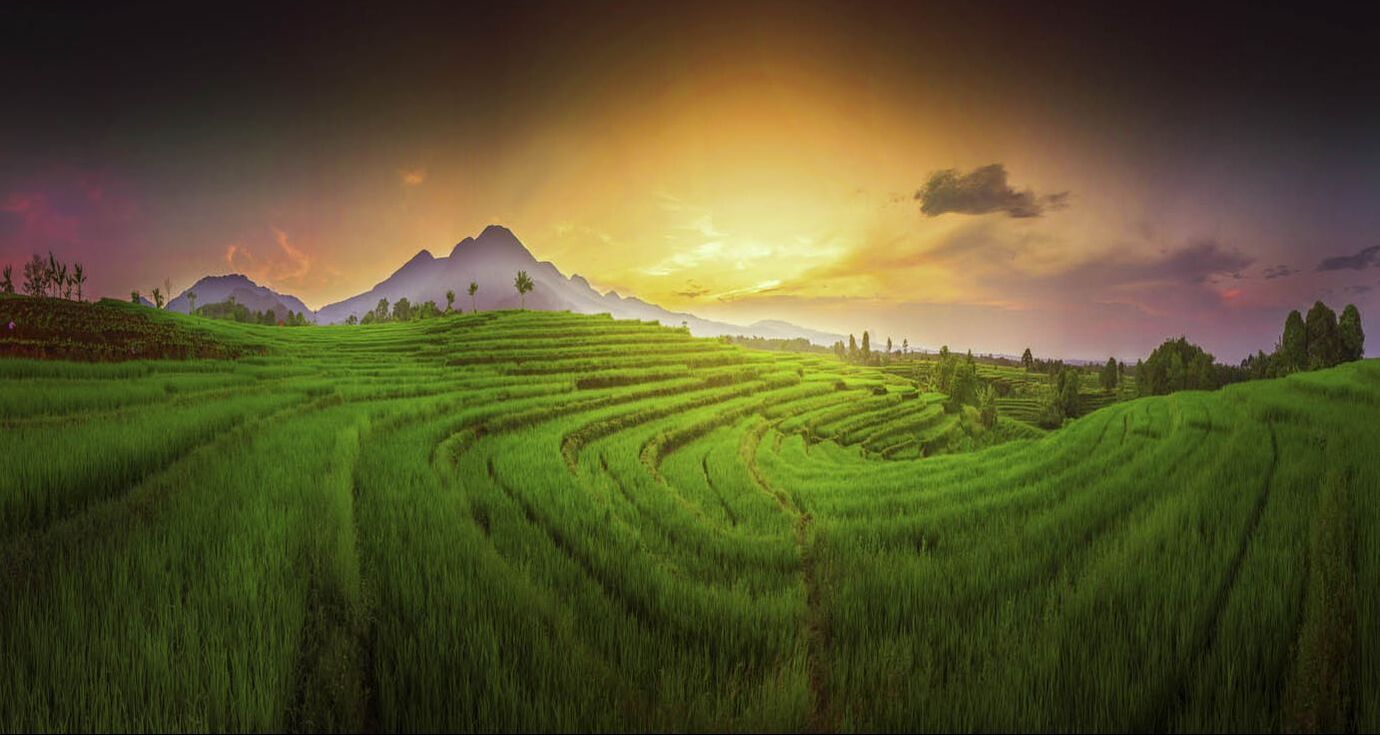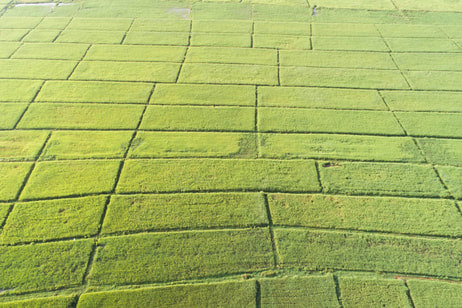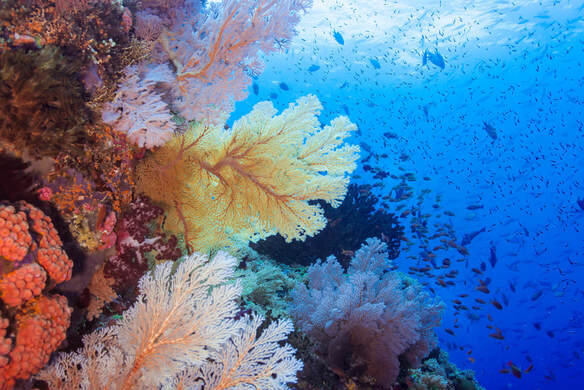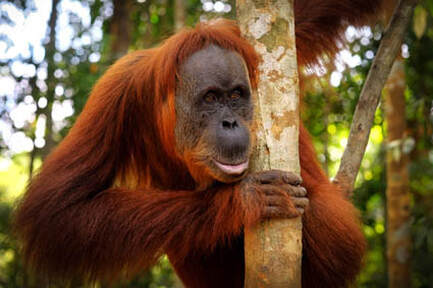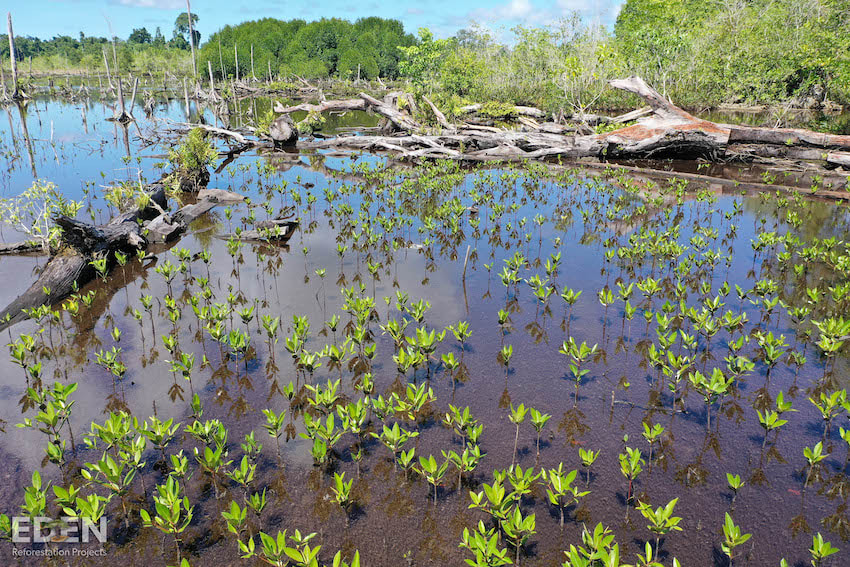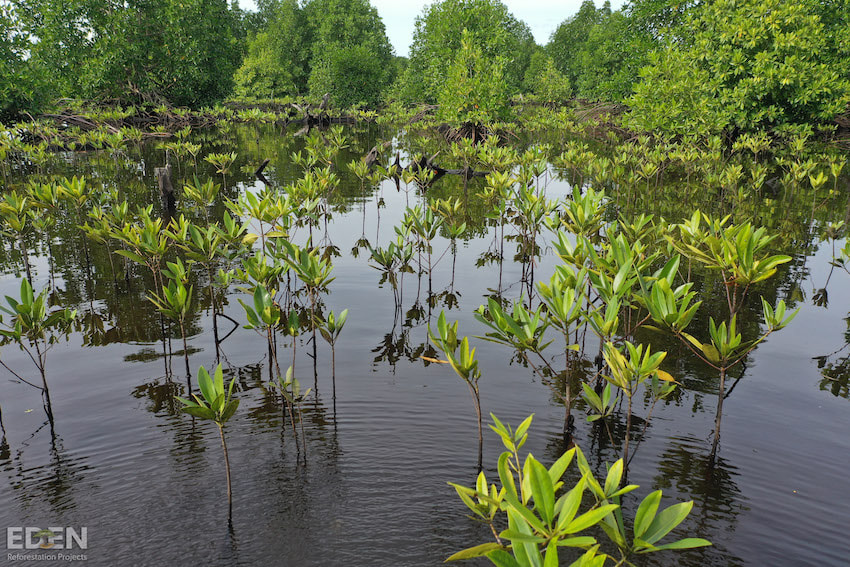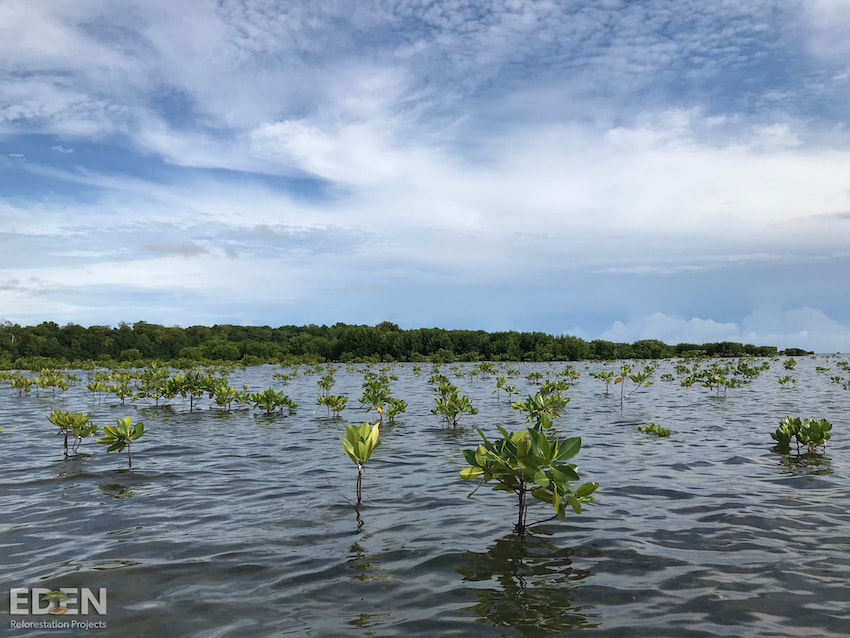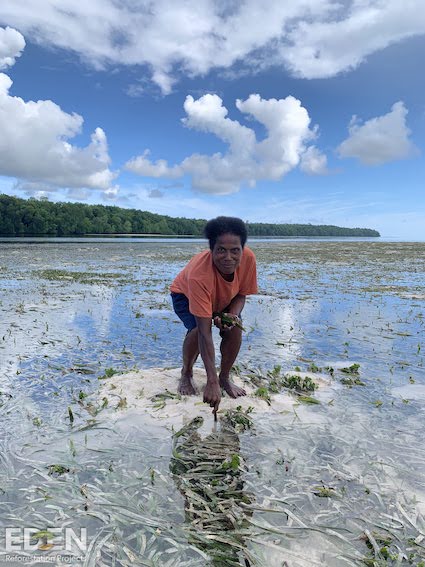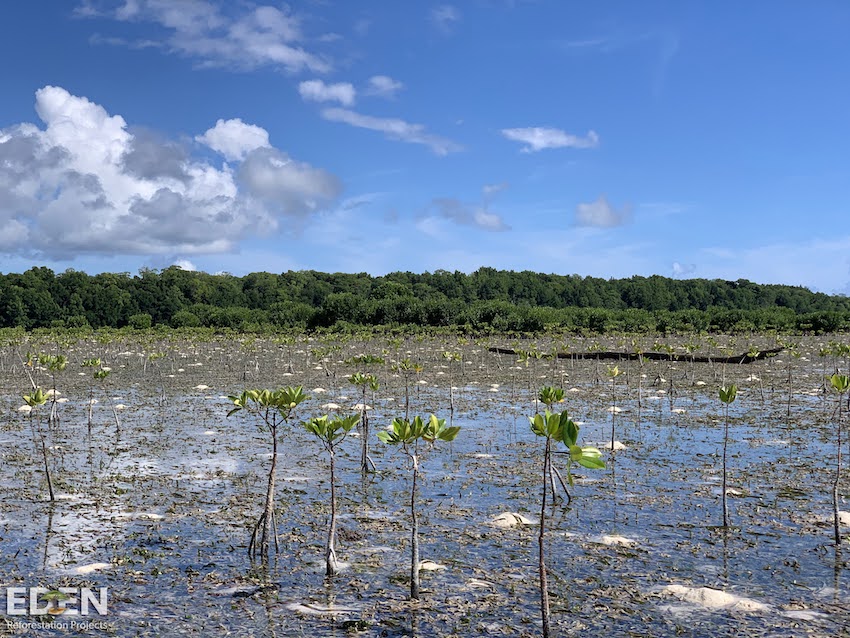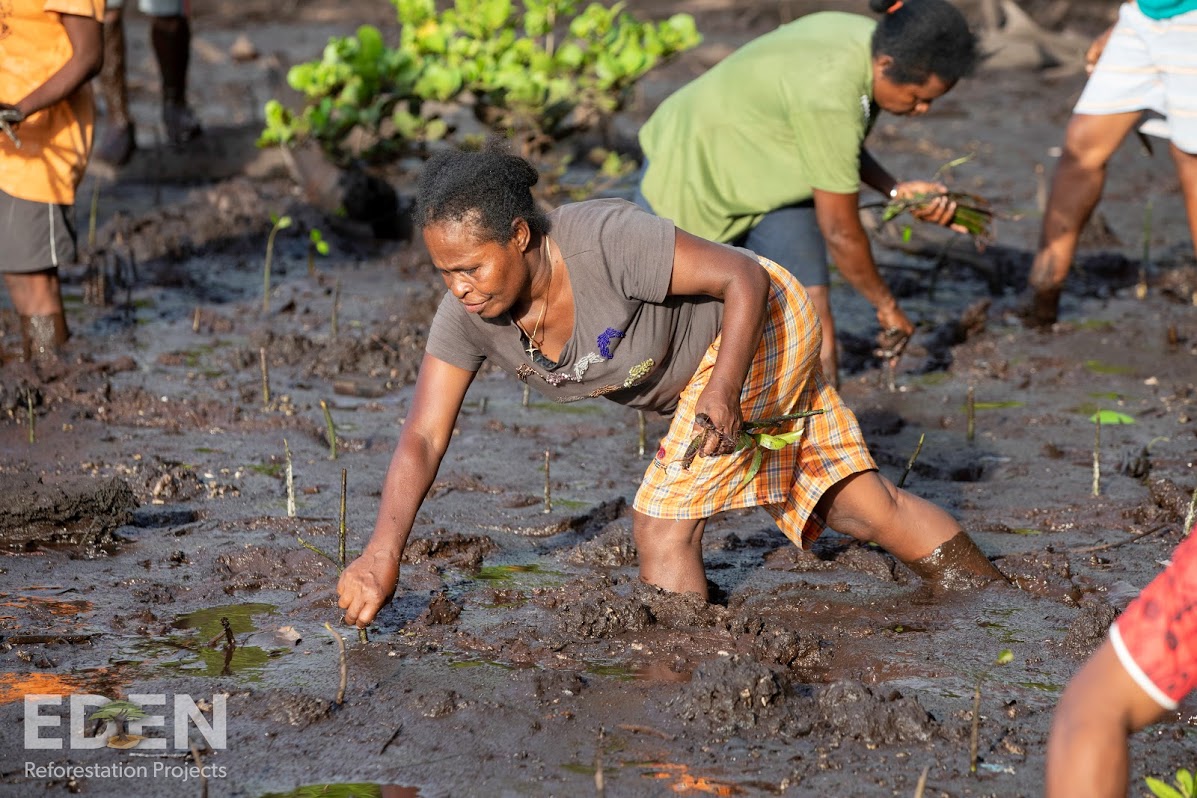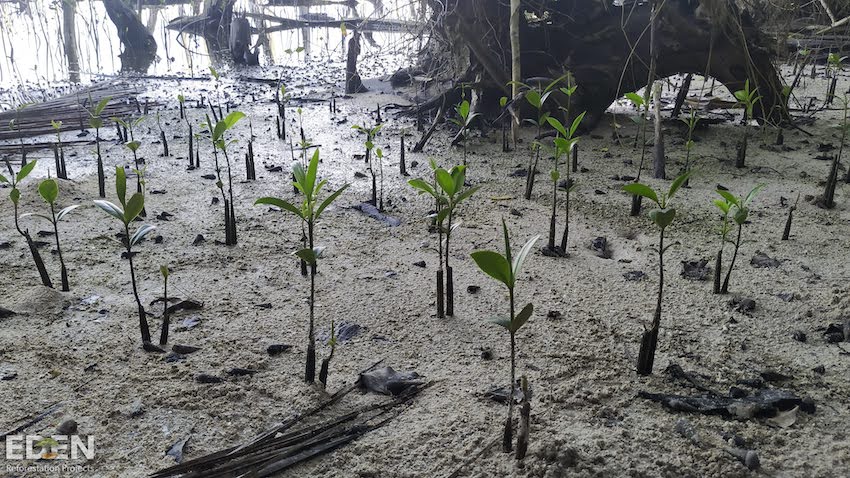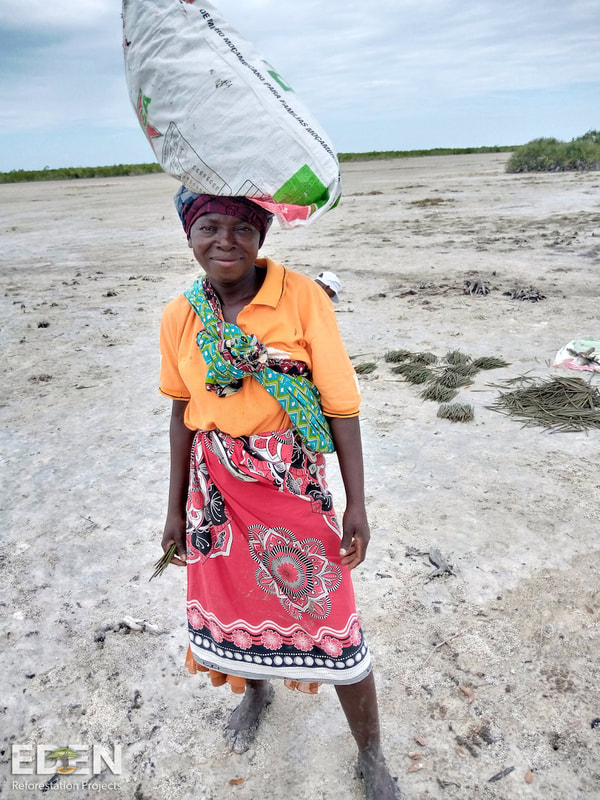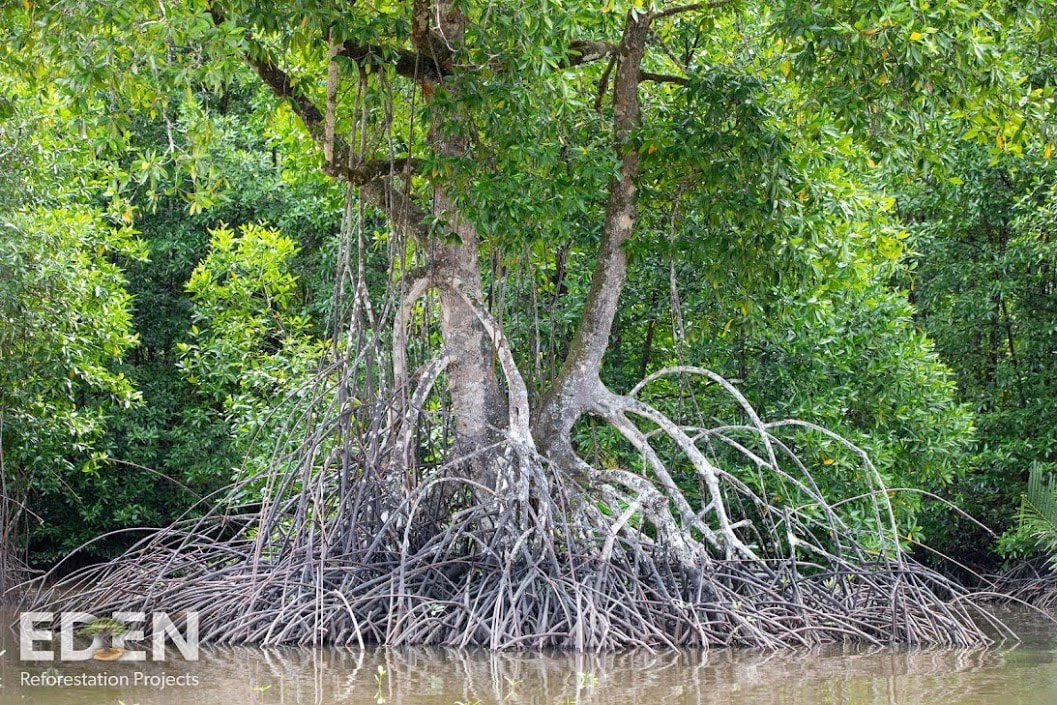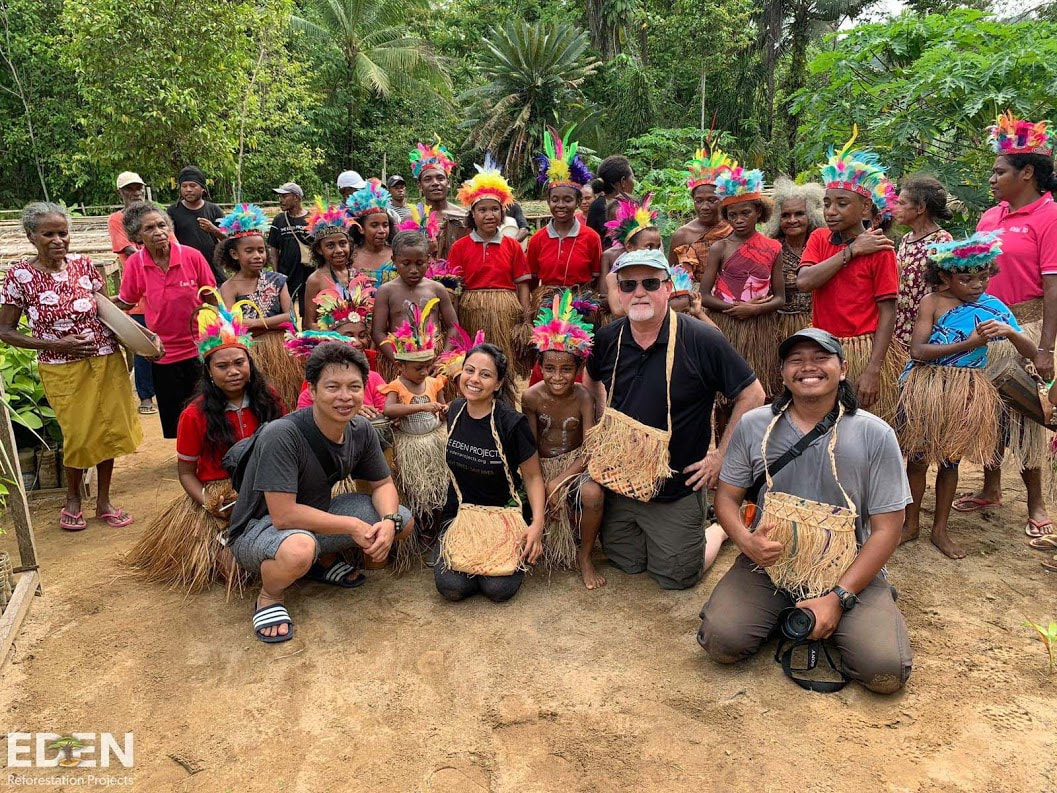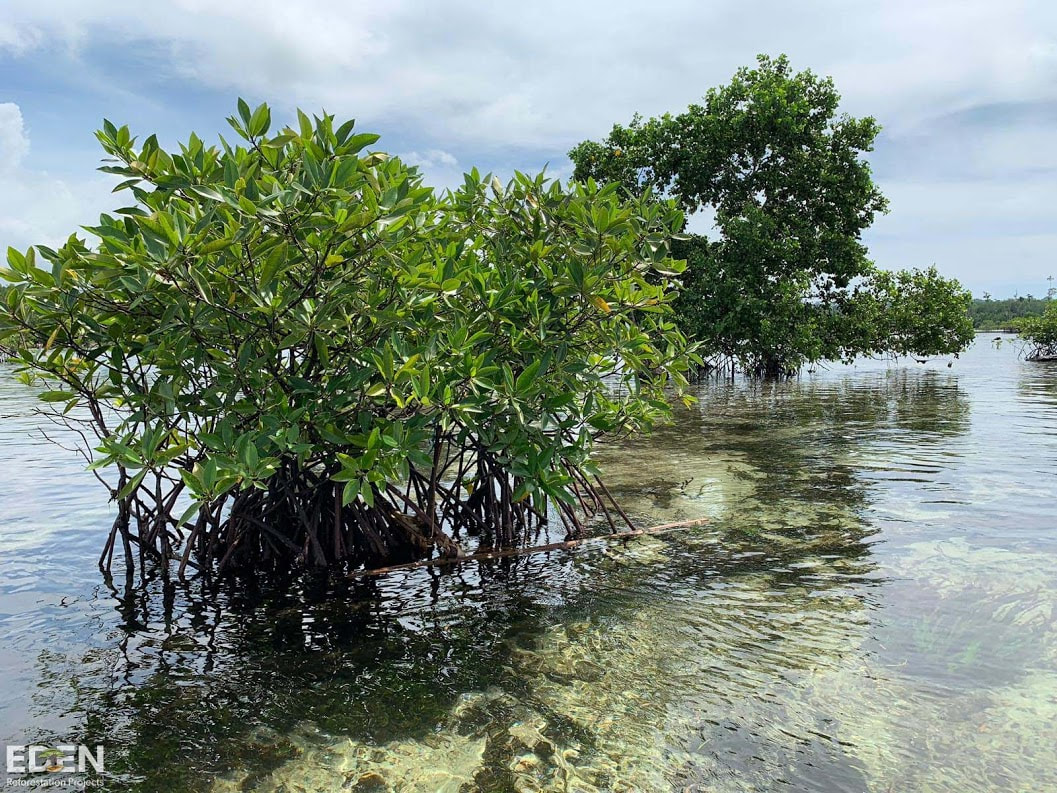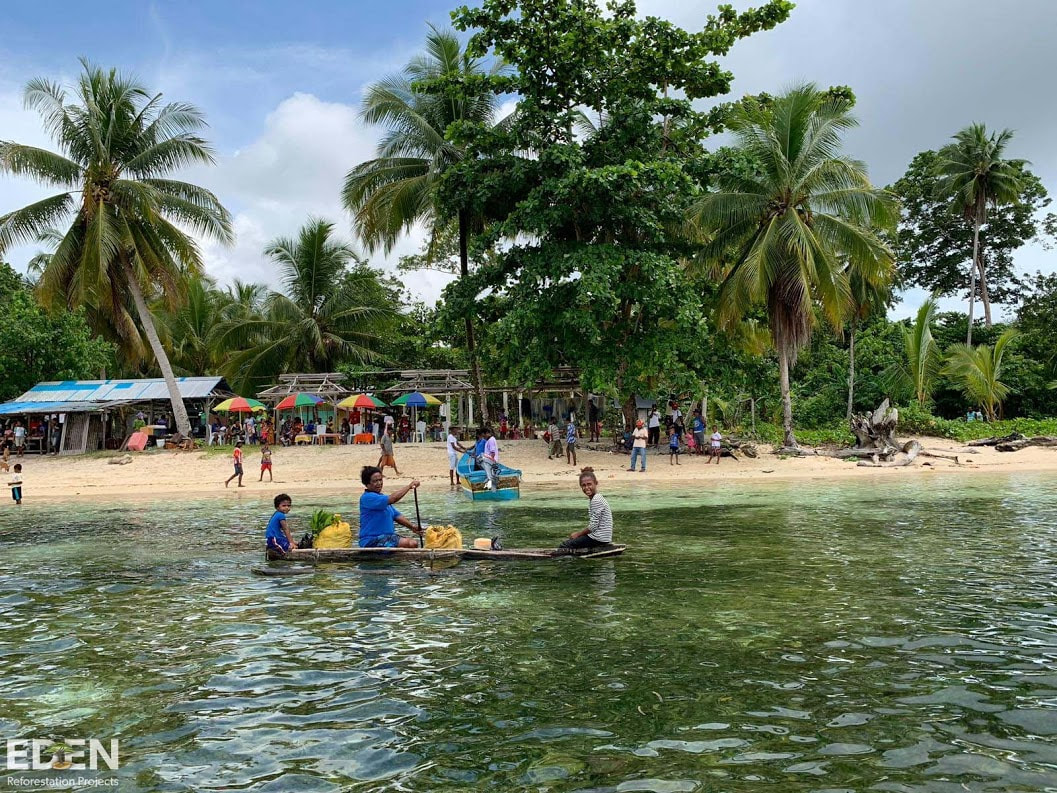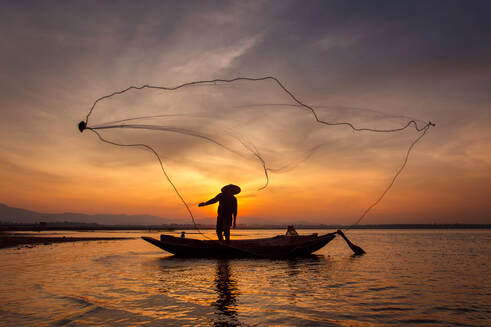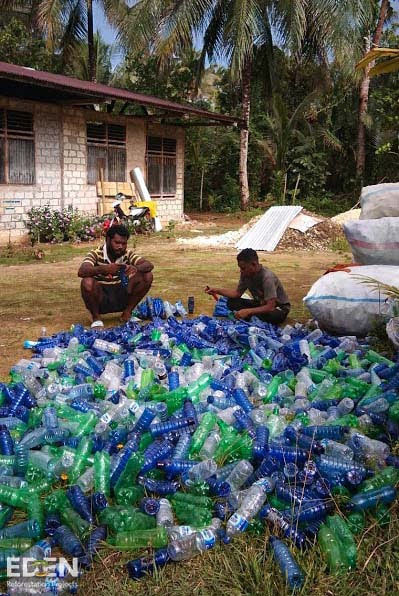Indonesia is consistently ranked in the top 3 countries
in the world for the highest rate of deforestation,
at times overtaking Brazil.
In 1996 Biak Island was hit by a tsunami caused by an 8.2 magnitude earthquake.
The devastating wave reached 23 ft (7 metres) high.
160 people were reported dead, 423 were injured and 5090 were left homeless.
Twenty-three years later, you can still see the effect. Large piles of tree trunks can be found lying on the shore, in the shallows and even deep under water.
Our reforestation partner Eden started planting on Biak island in 2017 and have now finished their work in this region. We firmly believe Indonesia can benefit from further reforestation and are actively seeking new projects in the area.
We were collaborating on two separate projects on the island.
The first restored tropical forests cut down for timber and 'slash and burn' agriculture,
whilst the second project restored mangrove forests along the extensive coastline.
The first restored tropical forests cut down for timber and 'slash and burn' agriculture,
whilst the second project restored mangrove forests along the extensive coastline.
Mangrove restoration on Biak is particularly essential.
Mangroves reduce the risks of soil erosion, tsunami damage and flooding.
They create a barrier between land and sea protecting the island's inhabitants.
As one of the world's principal stores of "blue carbon" (carbon accumulated in coastal or marine ecosystems), mangroves clean the water providing a natural habitat for fish and sea creatures ,
thereby improving the health of the nearby coral.
These mangrove ecosystems also provide a safe nursery for schooling fish as well as increased livelihoods for the local community members that depend on their environment for survival.
Mangroves reduce the risks of soil erosion, tsunami damage and flooding.
They create a barrier between land and sea protecting the island's inhabitants.
As one of the world's principal stores of "blue carbon" (carbon accumulated in coastal or marine ecosystems), mangroves clean the water providing a natural habitat for fish and sea creatures ,
thereby improving the health of the nearby coral.
These mangrove ecosystems also provide a safe nursery for schooling fish as well as increased livelihoods for the local community members that depend on their environment for survival.
|
Always looking to find new ways to have positive impacts on the environment,
the teams in Indonesia actively collected discarded plastic bottles from restaurants and hotels to use as planting tubes in the nurseries. A lot of our non-mangrove trees start their life in a nursery and these plastic tubes allow the seedlings to grow large enough to be planted in the forest, simultaneously helping the environment by re-using plastic waste. |

